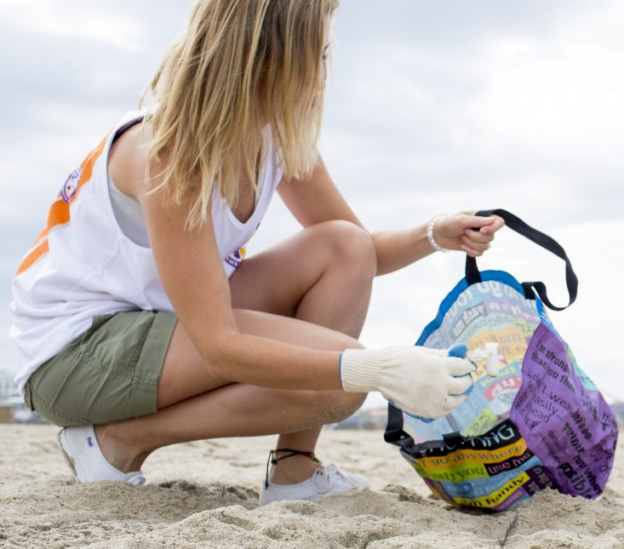Updated: 21/04/2025
Given today’s perspective, if this scene in Mike Nichols’ The Graduate hasn’t turned out to be cinema’s most ironic from the 1960s, it’s certainly among the top candidates:
To be sure, plastic is one of the most life-changing materials ever devised by man. With seemingly never-ending applications for it — think 3D printers, among other things — it’s going to be around for a long, long time.
As we now know, though, there’s a price to be paid:
It’s a daunting challenge, but modern solutions are coming to the rescue. At the forefront is nothing less than one of the most revolutionary developments of the last decade:
The blockchain.
Plastic waste is a significant problem worldwide, even more so in poor nations because they often lack a reliable waste-management system. In some countries, large stretches of land and rivers are carpeted with bottles, bags and other plastic debris.
According to one recent study, 90% percent of plastic jetsam in the ocean comes from 10 rivers, eight in Asia and two in Africa.
In 2013, a Vancouver BC startup had a plan to address this issue that would be both viable and scalable using the blockchain, and the Plastic Bank came into being:
Haiti was an ideal nation to put the Plastic Bank into practice, so it was where their operations began in 2015.
A decent wage there is around $2 a day, and the Plastic Bank offered $5 a day to a quickly grown legion of plastic waste collectors. To date, over 100million plastic bottles have been reclaimed. They’re then processed into flakes or pellets and exported to other countries, where they’re used to make new products.
As a result, participating Haitians have been able to establish financial profiles, enabling them to obtain credit and begin saving, although most don’t even have birth certificates or other means of official identification. It’s the blockchain’s unique ID nomenclature that overcomes the problem. In this instance, the platform deployed was IBM’s:
This is the concept that makes the blockchain invaluable.
No Bitcoin is needed, nor Litecoin, nor any other coin. The blockchain supports the Plastic Bank’s micro-economy, and its product-based digital token is transferable anywhere in the world.
When people bring plastic waste to recycling centers for export, they’re reimbursed via digital tokens into a bank account accessible by smartphone. They can then exchange the tokens for goods such as food, water, phone minutes, and more.
Plastic Bank has branded its product as social plastic. Great name. Great cause.
Plastic Bank operates as a business, which is one of its attractions. It’s also established a charitable wing for those who wish to donate. Feel free, and hard currency is welcome.
Ironically, they haven’t deployed the blockchain for that purpose yet.
Kjell Sherman, Manager – The Norra Ljusen Trust

Norra Ljusen — pronounced norra YOU-sun — is Swedish for Northern Lights. My name, Kjell, is pronounced shell to English speakers.
You can view a short video about how I entered the exciting world of online entrepreneurship on the home page of our Better Life Focus site. It’s dedicated to motivated marketers and provides trending Dot Com news, information, and entertainment for motivated entrepreneurs who commit to take action in their quest to reclaim their time by becoming and remaining financially independent via e-commerce.
If you’re committed to online success, we’d like to welcome you to the Dot Com lifestyle!


